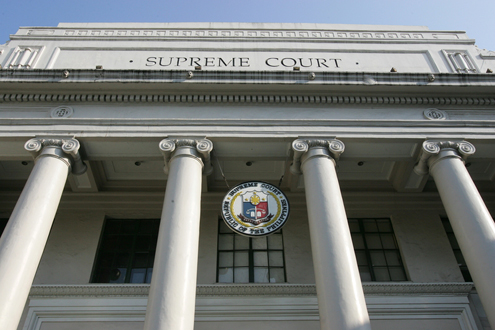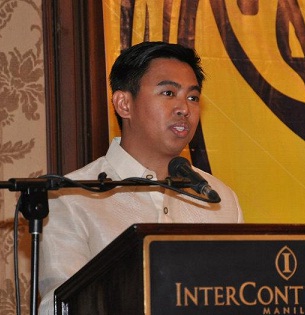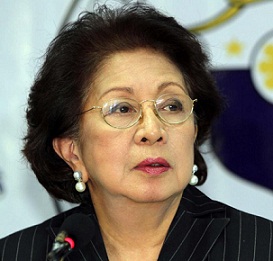
The Supreme Court has been presented the golden opportunity to right a wrong that has spawned corruption and a culture of impunity by elected officials.
In the hearing of the case on the suspension by the Ombudsman of Makati Mayor Jejomar Erwin “Junjun” Binay, Jr. before the Supreme Court, lawyers of Binay invoked the “”doctrine of condonation” also known as the “Aguinaldo doctrine” that immunizes an elected official from being removed for administrative misconduct once re-elected.
The doctrine does not apply to criminal cases.
The condonation doctrine over-stretched the proverb, “The will of the people is the will of God.”
This much-abused doctrine has no legal and constitutional basis. It’s origin goes back to a 1959 decision by Supreme Court Justice David J. Gutierrez when he decided in favor of Mayor Arturo B. Pascual in a case filed by Provincial Board.
Pascual was elected mayor of San Jose, Nueva Ecija in November 1951 and reelected in 1955.
In dismissing the charges of maladministrative, abuse of authority, and usurpation of judicial functions against Pascual, Gutierrez said, “When the people have elected a man to office, it must be assumed that they did this with knowledge of his life and character, and that they disregarded or forgave his faults or misconduct, if he had been guilty of any. It is not for the court, by reason of such faults or misconduct to practically overrule the will of the people.”
Many other public officials used that doctrine to hold on to their positions when facing removal from their elected positions. One of them was rebel soldier Rodolfo E. Aguinaldo who was elected governor of Cagayan province in 1988. In December 1989, he joined the coup d’etat against President Cory Aquino. He was re-elected in 1992.
Then Interior Secretary Luis Santos filed a case against Aquinaldo. Using “condonation doctrine,” Justice Rodolfo A. Nocon said Aguinalso’s “ re-election to the position of Governor of Cagayan has rendered the administration case pending before us moot and academic.”
That is what Junjun Binay argues: his re-election in 2013 has immunized him from administrative sanctions in connection with the overpriced Makati City Hall Parking building built to the tune of P2.3 billion during his first term.
Ombudsman Conchita Carpio-Morales is asking the Supreme Court to revisit the “Condonation/Aguinaldo doctrine” because it has become a refuge of corrupt public officials.
“This present (Binay) case presents a fortuitous opportunity for the Honorable Supreme Court to emphasize the fundamental principle that ‘the purpose of an administrative proceeding is to protect the public service based on the time-honored principle that a public office is a public trust,’” she said.The Ombudsman further said her office would be deficient in its constitutional designation as “protector of the people” if it will continue to be shackled by a legal fiction that provides blanket immunity from disciplinary measures to re-elected officials without regard to the peculiar circumstances of each and every case.
***
A concerned citizen, Mariano Tecson, shared with us his views on the Condonation/Aguinaldo doctrine:
“I support the call of Ombudsman Conchita Carpio-Morales for a review of the Supreme Court policy—the so-called Aguinaldo doctrine—absolving elected public officials of administrative charges once they are reelected.
“In the absence of enabling law for it, at the very least, the Aguinaldo condonation doctrine should be founded on sound logic. With all due respect to Supreme Court justices concerned, it seems the doctrine is flawed and suffers from what may be considered a legal technicality, as follows:
1. Absolution by reelection should be premised on the holding of clean and honest elections—but only those coming from the planet Mars could not see the major defects of our election system. Under it, re-electionist local government officials can use public funds in undertaking vote-buying projects. In addition, through different modes of corruption, they may steal public funds, buy votes of their generally poor constituents, and engage in other forms of election manipulation and cheating to ensure their reelection. So, why should questionable results of our election processes be used to justify absolution from crimes of traditional politicians, especially those belonging to well-entrenched political dynasties?
2. A more compelling reason: Local governments receive internal revenue allotment from the national government. The IRA includes taxes paid by the taxpaying public nationwide. If part of local government funds—which include IRA from the national government—is stolen by local government officials, their act of corruption is a crime against the entire nation’s taxpayers from whom part of the stolen funds originated, and the complainants in the criminal case against them will be all of the People of the Philippines.
“ Therefore, if absolution by reelection is to be perpetuated as a Supreme Court policy, such reelection should be by the whole nation’s aggrieved taxpayers and voters , not by just the limited local voting public that originally elected the erring government officials. As this logically needed voting by all aggrieved taxpayers and voters is not being done and will not be done, then the fatally flawed policy of absolving through reelection the government officials charged with corruption should be discarded. The assumed regularity of the Ombudsman’s action against the charged government officials, complete with prima facie evidence against them, should be respected by the Supreme Court. “


